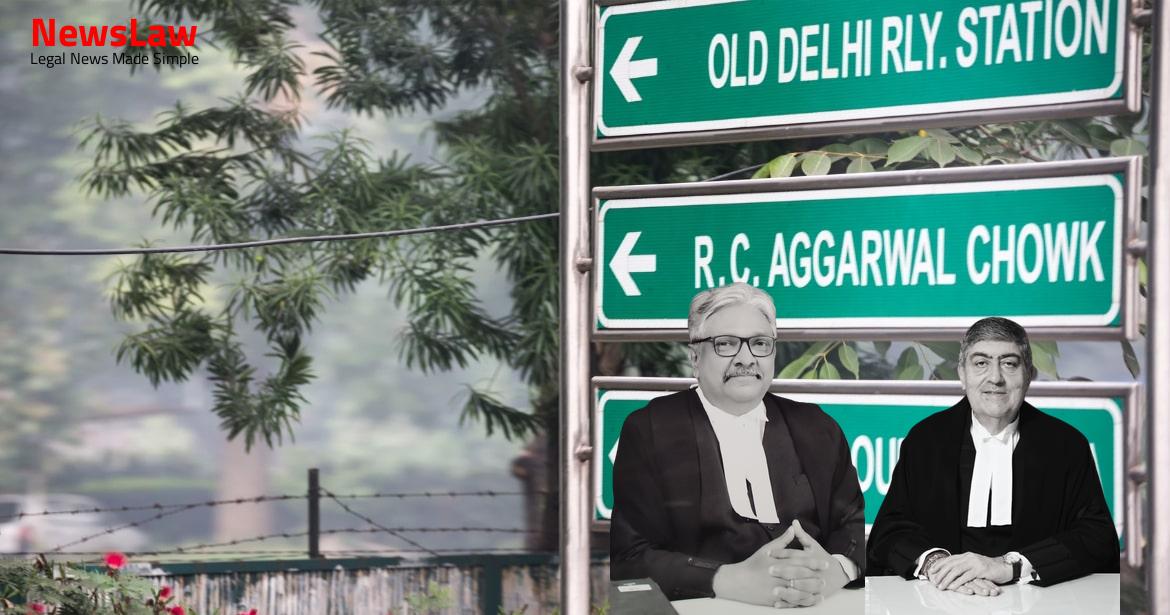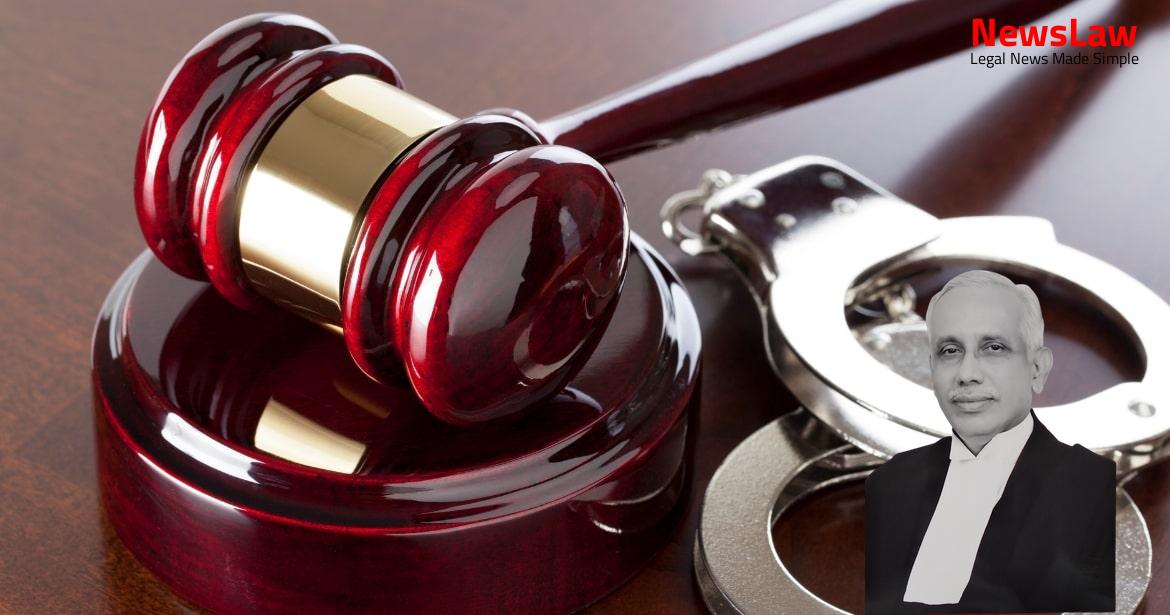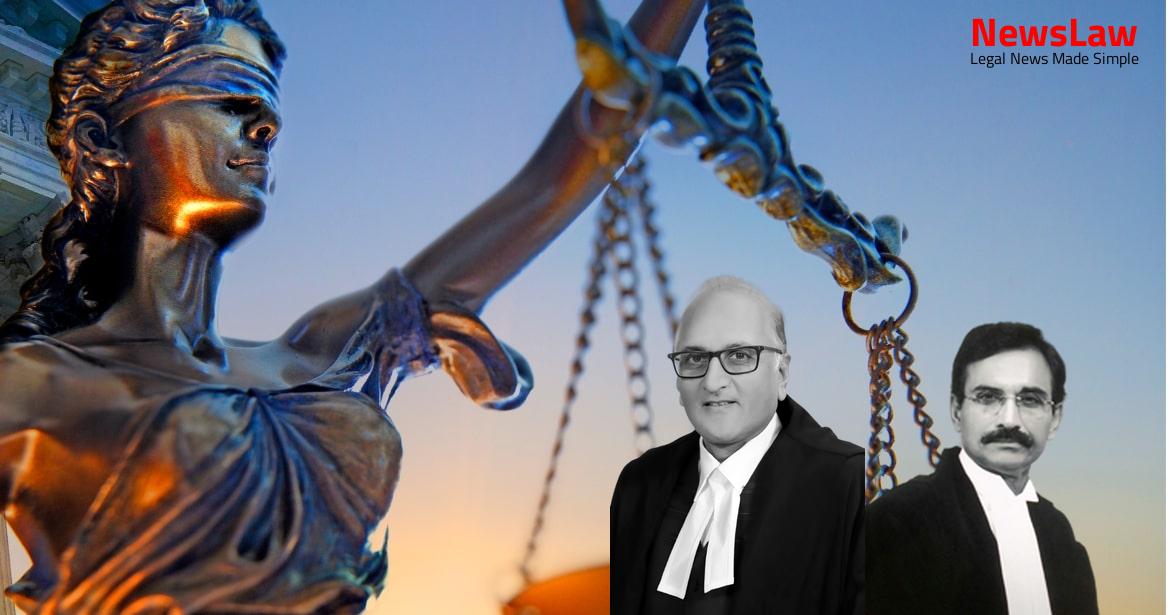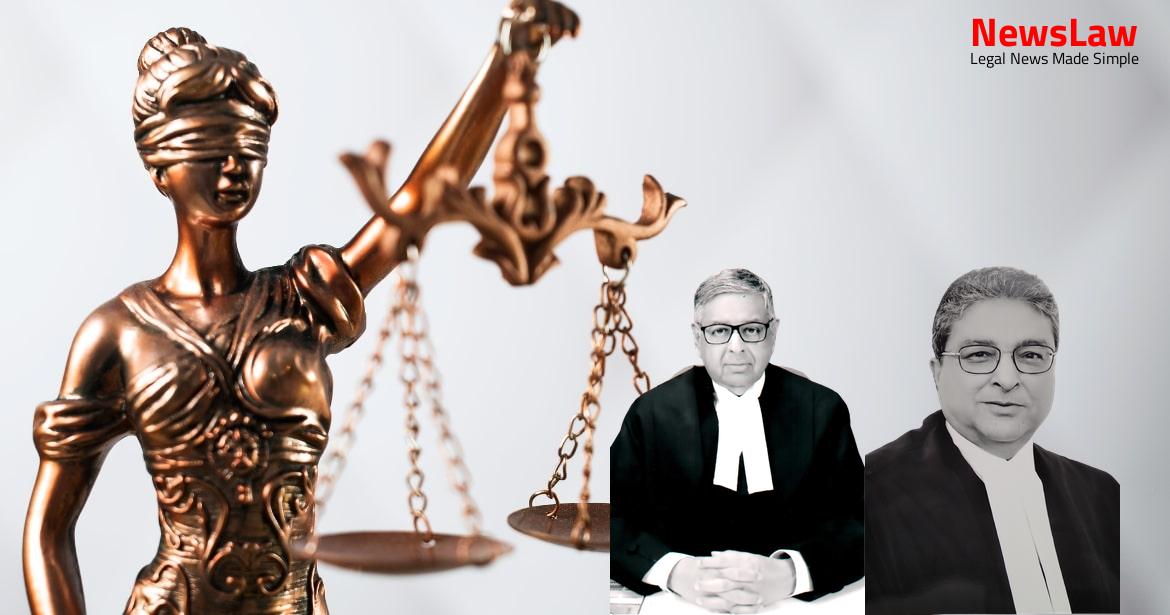In a significant legal battle, Actual Name challenged the seniority list prepared by the Central Administrative Tribunal. The case involved a dispute regarding the terms and conditions of absorption for deputationists, affecting seniority calculations. The judgment in this case emphasized the importance of transparency and adherence to absorption terms. Find out more about this intriguing seniority dispute!
Facts
- In 1994, Actual Name requested for transfer to Bhubaneshwar and joined as Deputy Conservator of Forests as LDC.
- Challenged seniority list showing him below two others, including the appellant.
- Filed a case before Central Administrative Tribunal, Cuttack Bench, which was dismissed in 2003 based on government’s counter affidavit.
- Was treated as ‘fresh appointee’ in the Eastern Regional Office, ranked junior most in the cadre.
- Despite consent, faced rejection of representation seeking absorption on transfer basis.
- Granted maximum extensions but still persisted with the transfer request.
- Submitted representation seeking posting in Orissa on compassionate grounds as LDC (Hindi Typist).
Also Read: Supreme Court Judgment on Single Till Mechanism for HRAB Calculation: A Comprehensive Analysis
Arguments
- Learned counsel for Petitioner No.1 referred to the judgment in Sub-Inspector Rooplal.
- Tried to persuade the court to a different conclusion using the aforementioned judgment.
- Highlighted the relevance of the previous judgment in the current case.
Analysis
- The judgement discussed a case where individuals were absorbed on deputation basis in the police department to fill urgent vacancies.
- It highlighted the importance of full disclosure and transparency in the terms of absorption for deputationists.
- The case differentiated the current situation from a previous case where absorption terms were not clearly communicated.
- The ruling emphasized that seniority in the absorbed grade should normally be counted from the date of absorption, even for deputationists.
- It addressed the issue of seniority disturbance and the importance of following established principles in such cases.
- The judgment modified a circular to align with the principle that seniority for transferees is typically counted from the date of absorption.
- It pointed out that transfers not strictly in public interest may impact seniority calculations after absorption.
- The case involved insistence from the individual to avoid returning to the parent cadre, leading to absorption under specific terms.
- The individual’s disagreement with the seniority conditions led to a legal challenge and a directive for reconsideration of seniority and potential promotion.
- The summary concludes by stressing the importance of adhering to absorption terms and considering regular service in fixing seniority.
- The seniority list was challenged only after its circulation, in an indirect manner, questioning the terms and conditions of absorption, which is not permissible.
- The absorption condition stated that it would be deemed as new recruitment and previous service would count for all purposes except seniority in the cadre.
- The appellant accepted these conditions without objection, so the seniority list prepared based on these conditions was valid.
- The principle of past service in a cadre for seniority, as per the judgment in Mrigank Johri & Ors. v. Union of India & Ors., applies to the present case.
- The appointment of an officer initially on deputation and subsequent absorption should follow the principle that seniority is counted from the date of absorption.
- The deputation being subject to certain conditions, the principle of person moving to another cadre applies, and terms of absorption govern such deputation.
- The Union of India changed its stance from the Central Administrative Tribunal to the Court without proper reasons, which needs closer scrutiny.
- Promotions earned by the officer during the litigation should not be revoked, and an ex-cadre/supernumerary post should be created to maintain his position without affecting seniority.
Also Read: Selection and Appointment of Judicial Officers in Himachal Pradesh
Case Title: SHRI GOVINDA CHANDRA TIRIA Vs. SIBAJI CHARAN PANDA (2020 INSC 132)
Case Number: C.A. No.-003542-003543 / 2010



